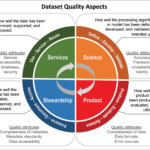

IPCC: Working Group III contribution to the IPCC Sixth Assessment Report
A key UN body says in a report that there must be “rapid, deep and immediate” cuts in carbon dioxide (CO2) emissions. After a contentious approval session where scientists and government officials went through the report line by line, the UN’s Intergovernmental Panel on Climate Change (IPCC) has now published its guidance on what the world can do to avoid an extremely dangerous future.
UK announces £5 million funding to expand the Met Office’s Weather and Climate Information Services activity in the MENA region
COP26 Regional Ambassador for the Middle East and Africa Janet Rogan recently announced £5 million UK funding to expand the Met Office’s successful Weather and Climate Information Services activity to the Middle East and North Africa (MENA) region. The programme aims to deliver transformation in the generation and use of co-produced weather and climate services to support decision making at local, national, and regional levels, building resilience to the impacts of climate change.
Early Warning and Early Action: A look at Fiji’s Multi-Hazard Early Warning System
Tonkin + Taylor’s Technical Director – DRR and Climate Resilience Dr Bapon Fakhruddin worked closely on the project providing system integration and operationalising the forecasting and early warning system. He shares insights into the design and unique ‘bottom-up’ community approach, how it’s performed and how it can further serve Fiji and the Pacific in the future in this article.
Nature-based solutions for flood risk reduction: A probabilistic modelling framework
A team of scientists from NTU’s Asian School of the Environment (ASE), led by Assistant Professor David Lallemant and Assistant Professor Perrine Hamel, have designed a probabilistic risk analysis framework capable of addressing the challenges of quantifying nature-based solutions. It considers multiple types of storm events and can be applied to large river basins in data-scarce environments.
Tunisia joins Morocco, Lebanon, and Jordan in using state-of-the-art drought management technology
Drought-monitoring technology that is currently being embedded in water and agricultural ministries in Jordan, Lebanon, and Morocco will now be implemented in Tunisia. The satellite-based enhanced composite drought index (eCDI) supports effective drought management by enabling authorities to identify, early on, the presence and evolution of drought.
From early warning to early action: inspiring & empowering the next generation
Young professionals and youth are the future leaders of early warning and early action. They have unique communication skills, are ready to innovate with the latest technology and bring their fresh energy and enthusiasm to the forefront of any challenge. To unpick the challenges and opportunities, the Water Youth Network, the Anticipation Hub and the Associated Programme on Flood Management brought young professionals together in a webinar marking World Meteorological Day 2022 to share their lessons and needs for joint action.
Cooperation between the US and Tonga for inclusive Disaster Risk Reduction
In the spirit of international cooperation, in May 2020, the United States government, through the US Agency for International Development (USAID), launched a two-year $1.1-billion project called Inclusive Disaster Resilience in Tonga (IDIT). It is seen as the first of its kind where people living with disabilities, and related organizations, are among the anchors of the actual project. They are actively engaged in different aspects of the project instead of simply being recipients of assistance.

Climate Change 2022: Mitigation of Climate Change
The Working Group III report provides an updated global assessment of climate change mitigation progress and pledges and examines the sources of global emissions. It explains developments in emission reduction and mitigation efforts, assessing the impact of national climate pledges in relation to long-term emissions goals.
The Climate Risk Tool Landscape – 2022
Given the growing number of climate risk tools and providers, UNEP FI has developed resources to inform financial institutions on the structure, coverage, and methodologies of commonly used tools. The financial sector has a central role to play in assessing and managing climate-related risks. To do so, many financial institutions are working with third-party providers to obtain the climate skills, information, and outputs they require. This report includes detailed case studies from 15 financial institutions.
Approaches in research on flood risk perception and their importance in flood risk management: a review
The study of flood risk perception factors can be considered by using different paradigms. In an attempt to understand risk perception, two basic paradigms can be distinguished: rationalist and constructivist. This review paper aims to assess the importance of the rationalist and constructivist approaches in research on flood risk perception and flood risk management more broadly.
Improved data to better understand exposure, vulnerabilities and hazards
This brief explores key improvements in data delivered by SHEAR projects. The SHEAR programme (Science for Humanitarian Emergencies and Resilience) carried out innovative research, in some of the most hazard-prone parts of the world, to better understand and forecast disasters, and minimize the risk they pose to vulnerable communities.
Addressing Climate Change Through Integrated Responses: Linking adaptation and mitigation
This policy brief aims to build on a series of recent peer learning events focused on addressing climate change through integrated responses by linking adaptation and mitigation at the planning and implementation stages. Countries have established national policy processes aimed at addressing these complex issues. Inherently, these policies and strategies often have interconnected objectives and common themes, which creates a foundation for alignment and joint activities to provide common solutions to these challenges.
A tool to assess livelihood preparedness for disasters: a study of Kaikōura earthquake in New Zealand
By studying the experience and perceptions of communities affected by the 2016 Kaikōura earthquake in New Zealand, this paper aims to develop an assessment tool for measuring livelihood preparedness. Results from a survey of 140 residents in Kaikōura who lived through the earthquake and its aftermath identified four indicators of livelihood preparedness, namely: resource accessibility, individual adaptive capacity, livelihood diversity, and the effectiveness of disaster risk reduction (DRR) measure.

The Asia Pacific Science and Technology conference for disaster risk reduction (APSTCDRR) 2022
The Asia Pacific Science and Technology Conference for Disaster Risk Reduction 2022 will share experiences on the use of S&T to address compound, cascading and systemic risk, foster exchanges on the contribution of S&T to inclusive risk governance, define the contribution of the Asia Pacific region to the implementation of global frameworks and roadmaps related to S&T for DRR, and review the contribution of S&T in the region to the implementation of the Sendai Framework to be reflected in the Mid-Term Review of the Sendai Framework.
The GEO Virtual Symposium 2022
We invite you to attend the GEO Virtual Symposium 2022, which will be held from 2-5 May. The symposium theme is Global Action for Local Impact, and the event will focus on supporting the development of the 2023-2025 GEO Work Programme (GWP).
CORE Webinar 1- Resilience of the society: A global perspective
The webinar will cover crisis management awareness & capability, Disaster Risk Reduction, the vulnerability in Disaster Risk Management, spontaneous volunteers, and possible impacts of main threats in Europe and possible adaptations.
Humanitarian Networks and Partnerships Weeks
Areas of Common Concern at HNPW 2022 include Accountability to Affected Populations, the Climate Crisis, Inclusion, Localization and Coordination, Integrating of Security Risk Management across Humanitarian Action, Anticipatory Action, Organizational Culture and Power Relations, Nexus Environment and Emergency Response in a Pandemic.
Masterclass on Disaster Resilient Infrastructure Standards and Certifications
This masterclass will provide an overview of relevant standards for infrastructure resilience following a detailed insight on International Standard (ISO 14090:2019 Adaptation to Climate Change and the Sustainable and Resilient Infrastructure standards (SuRe®)) and Certifications.
The Global Call to Action on Emergency Alerting
Despite today’s amazing telecommunications services, too many people in harm’s way still do not get timely and effective emergency alerts so they can protect lives and livelihoods. This session features five panellists, each will bring their perspective on the Call to Action, explaining how they are pursuing the objective as well as what challenges and opportunities they foresee.






